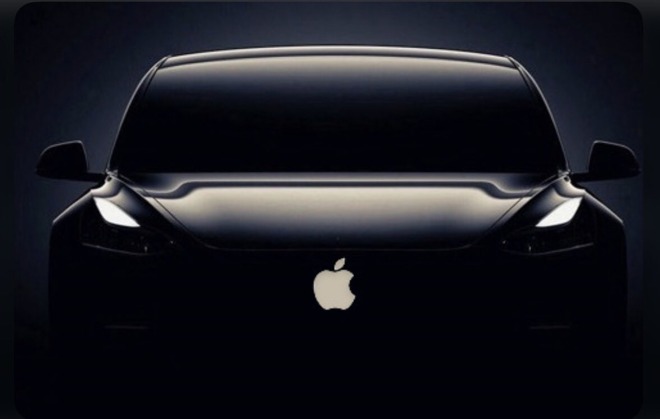The "Apple Car" may not disrupt the market when it first debuts, but Piper Sandler says it could become a solid hardware revenue source for Apple, possibly generating $50 billion by 2030.

Credit: AppleInsider
In a note to investors seen by AppleInsider, lead analyst Harsh Kumar laid out Piper Sandler's framework for a potential "Apple Car" release.
"Overall, we think Apple entering the automotive market makes perfect sense. Similar to its other hardware offerings, the company can enter the market at a time of peak technology disruption while avoiding the risk of forming the market," Kumar wrote.
It's possible that Apple could opt to make its automotive debut smaller in scale with an upgraded CarPlay system or an Apple-branded vehicle user interface for use in other manufacturer cars. However, Kumar says he expects Apple will run with a "full-blown Apple branded electric vehicle."
That's because Apple could control every aspect of the design, including the electric vehicle hardware and the baked-in software platform.
Citing recent reports, Kumar points out that Apple may be targeting a run of 100,000 vehicles in 2024. Based on that, he says Apple could generate about $5 billion in revenue with just less than 0.1% of the market. If it reached 1% market penetration by 2030, that could grow to $50 billion.
The analyst believes now is the right time for Apple to enter the car market. That's largely because it's "primed for technological innovation," and the fact that Apple could use the additional revenue to drive growth as products like the iPhone and Mac reach maturity.
Even if it does opt for an Apple-branded car, Kumar believes the company will tap a third-party manufacturer to actually produce it. Apple, he notes, doesn't assemble its own hardware products. However, Kumar says that Apple's development on vehicle tech has been in the works for years. As such, he believes the car could feature strong technology compared to rivals.
The biggest hurdle is Apple finding a manufacturing partner, since Kumar notes that carmakers don't want to be "the Foxconn of the auto industry."


